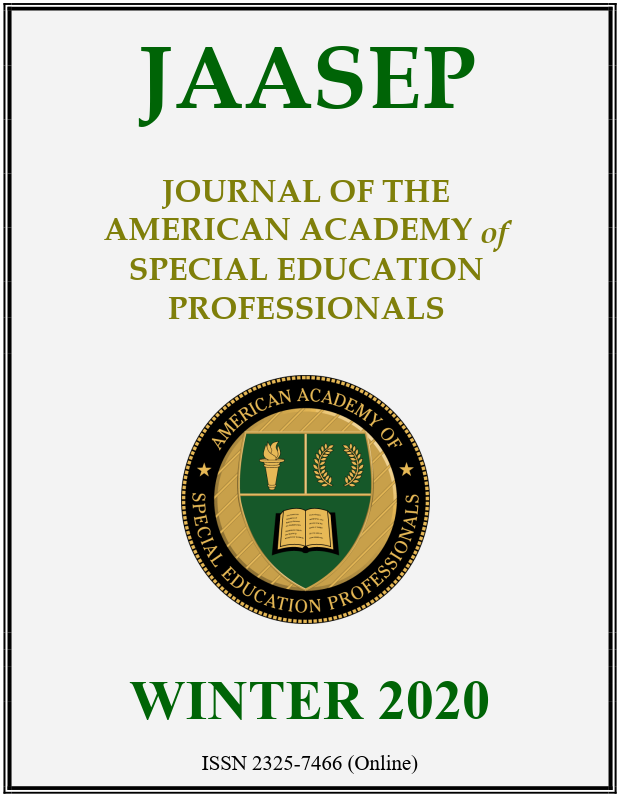How Early Experiences in Cognitive Development Improve Working Memory and Processing Speed Skills of Children
Braaten, E., & Willoughby, W. (2014). Bright Kids Who Can’t Keep Up. New York: The Guilford Press.
Cepeda, N. J., Blackwell, K. A., & Munakata, Y. (2013). Speed Isn't Everything: Complex Processing Speed Measures Mask Individual Differences and Developmental Changes in Executive Control. Developmental Science, 16(2), 269-286. DOI: https://doi.org/10.1111/desc.12024
Garner, B.K. (2007). Getting to Got it. Helping Struggling Students Learn How to Learn. Virginia: ASCD.
Hitchcock, C., & Westwell, M. S. (2017). A Cluster-Randomised, Controlled Trial of the Impact of Cogmed Working Memory Training on Both Academic Performance and Regulation of Social, Emotional and Behavioural Challenges. Journal of Child Psychology and Psychiatry, 58(2), 140-150. DOI: https://doi.org/10.1111/jcpp.12638
Kail, R. V., & Miller, C. A. (2006). Developmental Change in Processing Speed: Domain Specificity and Stability during Childhood and Adolescence. Journal of Cognition & Development, 7(1), 119-137. doi:10.1207/s15327647jcd0701_6 DOI: https://doi.org/10.1207/s15327647jcd0701_6
Kanerva, K., & Kalakoski, V. (2016). The predictive utility of a working memory span task depends on processing demand and the cognitive task. Applied Cognitive Psychology, 30(5), 681-690. doi:10.1002/acp.3243 DOI: https://doi.org/10.1002/acp.3243
Karpicke, J. D., Blunt, J. R., & Smith, M. A. (2016). Retrieval-based learning: Positive effects of retrieval practice in elementary school children. Frontiers in Psychology, 7 DOI: https://doi.org/10.3389/fpsyg.2016.00350
Lyon, G.R., & Krasnegor, N.A. (1996). Attention, Memory, and Executive Function. Maryland: Paul H. Brookes Publishing Co. DOI: https://doi.org/10.1097/00004703-199608000-00014
Lynch, S.A. & Laverne, W. (2012). A New Theoretical Perspective of Cognitive Abilities. Childhood Education: Olney, 88 (6). DOI: https://doi.org/10.1080/00094056.2012.741472
Mayes, S. D., & Calhoun, S. L. (2007). Learning, attention, writing, and processing speed in typical children and children with ADHD, autism, anxiety, depression, and oppositional-defiant disorder. Child Neuropsychology: A Journal on Normal and Abnormal Development in Childhood and Adolescence, 13(6), 469-493. DOI: https://doi.org/10.1080/09297040601112773
Montgomery, J. W., Magimairaj, B. M., & O'Malley, M. H. (2008). Role of Working Memory in Typically Developing Children's Complex Sentence Comprehension. Journal of Psycholinguistic Research, 37(5), 331-354. DOI: https://doi.org/10.1007/s10936-008-9077-z
Poll, G. H., Miller, C. A., Mainela-Arnold, E., Adams, K. D., Misra, M., & Park, J. S. (2013). Effects of Children's Working Memory Capacity and Processing Speed on Their Sentence Imitation Performance. International Journal of Language & Communication Disorders, 48(3), 329-342. DOI: https://doi.org/10.1111/1460-6984.12014
Sarette, S. A. (2014). The building blocks of a brain training community: How early experiences in a second grade classroom shape the development of self-regulation and working memory skills of children (Order No. 3636970). Available from ProQuest Dissertations & Theses A&I. (1616644921). Retrieved from http://ezproxy.franklinpierce.edu/login?url=https://search-proquest-com.ezproxy.franklinpierce.edu/docview/1616644921?accountid=37705
Schneider, Wolfgang & A. Ornstein, Peter. (2015). The Development of Children's Memory. DOI: https://doi.org/10.1111/cdep.12129
Child Development Perspectives. 9. 10.1111/cdep.12129. State University. (2018) Elementary Education-Current Trends-School. Children. Curriculum, and Schools. Retrieved from http://education.stateuniversity.com/pages/1948/Elementary-Education-CURRENT-TRENDS.html
Swanson, H. L., Jerman, O., & Zheng, X. (2008). Growth in Working Memory and Mathematical Problem Solving in Children at Risk and Not at Risk for Serious Math Difficulties. Journal of Educational Psychology, 100(2), 343-379.United States Census Bureau. (2018, May 2). Retrieved from https://www.census.gov/quickfacts DOI: https://doi.org/10.1037/0022-0663.100.2.343
Van de Weijer-Bergsma, E., Kroesbergen, E. H., Jolani, S., & Van Luit, J. H. (2016). The Monkey game: A computerized verbal working memory task for self-reliant administration in primary school children. Behavior Research Methods, 48(2), 756-771. doi:10.3758/s13428-015-0607-y DOI: https://doi.org/10.3758/s13428-015-0607-y
Volts, D.L., Sims, M.J., & Nelson, B. (2010). Connecting Teachers, Students and Standards. Virginia: ASCD.
Wassenberg, R., Hendriksen, J. M., Hurks, P. M., Feron, F. M., Keulers, E. H., Vles, J. H., & Jolles, J. (2008). Development of inattention, impulsivity, and processing speed as measured by the d2 Test: results of a large cross-sectional study in children aged 7-13. DOI: https://doi.org/10.1080/09297040601187940
Child Neuropsychology: A Journal on Normal and Abnormal Development In Childhood And Adolescence, 14(3), 195-210.
Weiler, M. D., Bernstein, J. H., Bellinger, D., & Waber, D. P. (2002). Information processing deficits in children with attention-deficit/hyperactivity disorder, inattentive type, and children with reading disability. Journal of Learning Disabilities, 35(5), 448-461. DOI: https://doi.org/10.1177/00222194020350050501
Winne, P. H., Marx, R. W., & Simon Fraser Univ., B. E. (1983). Students' Cognitive Processes While Learning from Teaching. Final Report (Volume One).
Downloads
Article Information
- Article Type Articles
- Submitted December 27, 2019
- Published February 15, 2020
- Issue Winter 2020
- Section Articles
